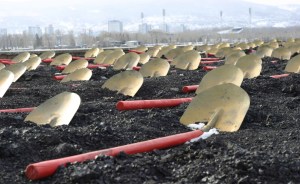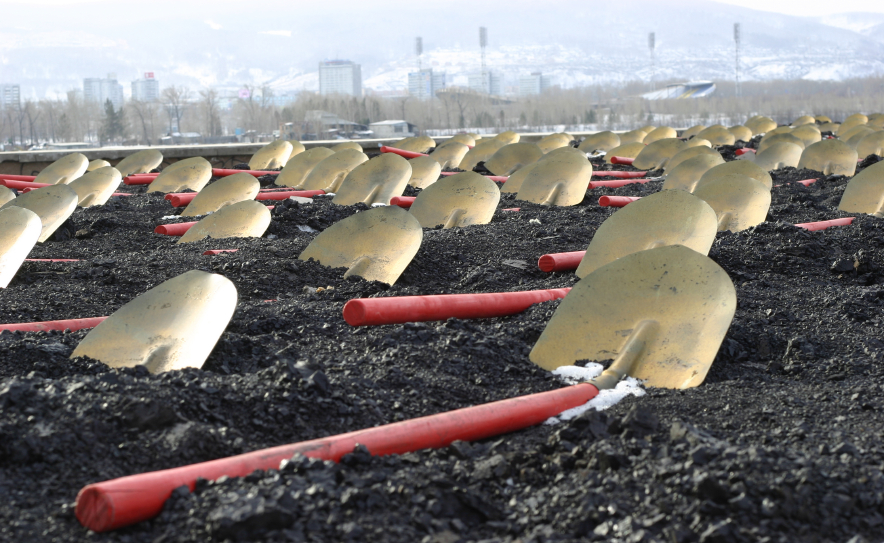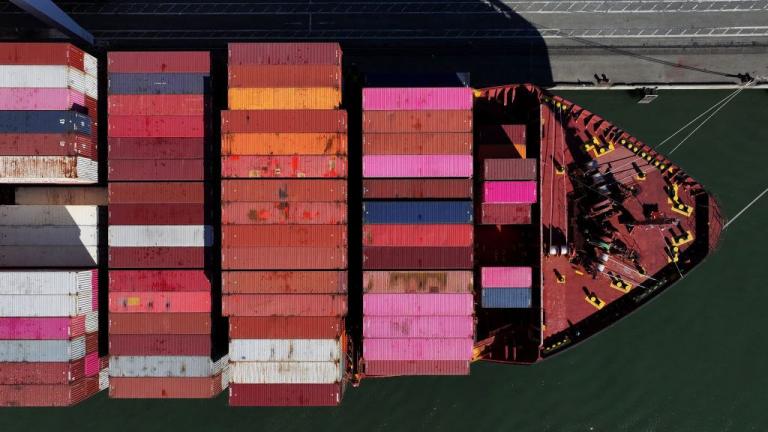
Put the shovels down and leave the coal alone.
I concluded my last post with a slogan: “Keep the damn coal in the ground.” Lo and behold, along comes a new paper in the Journal of Political Economy that sketches what that strategy might look like: “Buy Coal! A Case for Supply-Side Environmental Policy.” It’s fascinating.
Climate change is an enormous collective action problem. Typically the focus has been on demand-side policies — reducing fossil fuel consumption through taxes or mandates. Any “climate coalition” that adopts this strategy, however, has to worry about free riders that don’t. Author Bård Harstad of Northwestern University summarizes:
One of the biggest challenges for multi-national climate agreements is the role of non-participating countries. If a climate coalition reduces demand for fossil fuel, the world price of oil goes down and non-participating countries find it profitable to consume and pollute more. Similarly, if the coalition seeks to reduce the supply or extraction of fossil fuels, the world price increases and these countries find it optimal to supply more. Thus, both on the demand-side and the supply-side, the result is carbon leakage, which is an increase in pollution abroad relative to the emission-reduction at home.
In other words, global fossil-fuel markets are like a big balloon. If one set of countries squeezes consumption or extraction, the balloon just puffs up somewhere else. We consume less, they consume more. We extract less, they extract more. Carbon-intensive industries migrate to carbon-unconstrained countries (which, in practice, is how most Kyoto participants have reduced their emissions).
How big a deal is this “carbon leakage”?
Most estimates of leakage are in the interval 5-25 percent, but the number can be higher if the coalition is small, the policy ambitious, and the time horizon long.
Harstad says leakage “discourages countries from reducing emissions and may motivate them to set tariffs or border taxes, perhaps causing a trade war.” We don’t want a bunch of free riders to jack up their emissions if we reduce ours. And we don’t want to start a mutually destructive trade war. So … what’s the solution?
Harstad’s is simple: Focus on the supply side instead. Buy up fossil-fuel deposits in nonparticipating countries. Just keep the damn coal in the ground.
Here, from the paper, is why it should work (warning: wonky):
In equilibrium, the [climate] coalition finds it beneficial to purchase the right to exploit the foreign fossil-fuel deposits that are most costly to exploit. Since these deposits would generate little profit if exploited, the owner is willing to sell them rather cheaply. As a side effect, the selling country’s supply curve becomes a step function and its supply becomes locally inelastic. The coalition can then reduce its own supply marginally without fearing that nonparticipants will increase theirs. Without supply-side leakage, the coalition benefits from relying exclusively on supply-side policies and does not use demand-side policies that would have caused leakage. Consequently, the consumption price is equalized across countries, as are the marginal benefits from consumption. All allocations, including investments in technology, become efficient.
“All allocations become efficient”! That kind of sentence makes economists so happy. (And me a little suspicious.)
So the idea is, by buying up marginal fossil-fuel deposits around the world, a climate coalition gains the power to ratchet down its own extraction without leakage. Supply is constrained and fossil-fuel prices rise around the globe, meaning all countries share in the cost of reducing demand.
As a bonus, this strategy doesn’t require any grand global agreements or newfangled markets. It works through existing markets for extraction rights. It’s quite similar to the model used by organizations like The Nature Conservancy, which buy up threatened land and set it aside for conservation.
In the context of this kind of supply-side policy, I should note, it would make more sense for climate campaigners to try to block tar-sands extraction and coal exports. They could do so without fear of merely squeezing the balloon.
I have plenty of questions about this. Just how much fossil-fuel land are we talking about here? How much would have to be bought to start having a real impact on global fossil-fuel prices? How much could be bought before it starts to look like colonialism? And how much would that cost? Perhaps most importantly, where are the governments with the discipline to keep fossil-fuel deposits off-limits even as their value rises and rises?
Nonetheless, this is a intriguing and (as far as I know) genuinely new take on climate policy. Conceptually, it has a beguiling directness and simplicity: It keeps the damn coal in the ground.
Am I missing something? What do y’all think?



